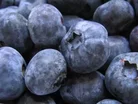World Cancer Day: The Biggest Cancer Myths Debunked

Every year, February 4th is dedicated to spreading awareness about one of the deadliest diseases in the world: cancer.
With more than 8 million cancer-related deaths taking place each year and approximately 14 million new cases, it’s a day that calls for global attention.
Thanks to a number of breakthroughs in research and treatment, cancer survival rates have doubled in the last 40 years, but the fight needs to continue. And while cancer is a well-known disease, there are still a number of myths that surround it.
[READ MORE] Why Scientists Learning How To Unboil An Egg Is Bad News For Cancer
Here, we debunk the biggest cancer myths to remove any stigma and bring the world closer to awareness.
1. Cancer is a man-made disease.
Cancer has existed for as long as humans have, being described by ancient Egyptian and Greek physicians in discovered texts. Researchers have also discovered signs of cancer in a 3,000 year old skeleton.
And while global, lifestyle-related diseases like cancer are on the rise, the biggest risk factor for cancer is age, according to the Cancer Research UK.
“The simple fact is that more people are living long enough to develop cancer because of our success in tackling infectious diseases and other historical causes of death such as malnutrition,” states the center. “It’s perfectly normal for DNA damage in our cells to build up as we age, and such damage can lead to cancer developing.”
2. Superfoods prevent cancer.
In all actuality, there is no such thing as a “superfood.” That doesn’t mean, however, that some foods are clearly healthier than others. Blueberries or a cup of green tea could certainly be part of a healthy diet, but the specific vegetables you choose don’t really matter.
Our bodies are complex and cancer is too, so saying that certain foods could have a major influence over your chance of developing cancer is a huge oversimplification.
[READ MORE] 4 Breakthroughs in the Fight Against Breast Cancer
3. Sugar feeds cancer.
While it’s sensible to limit sugary foods as part of an overall healthy diet, that’s a far cry from saying that sugary foods specifically feed cancer cells.
All our cells, cancerous or not, use glucose for energy. Because cancer cells are usually growing very fast compared with healthy cells, they have a particularly high demand for this fuel. Researchers are working to understand the differences in energy usage between healthy cells and cancerous cells and trying o exploit them to develop better treatments.
4. Cancer is a fungus.
This theory comes from the not-very-observant observation that “cancer is always white.”
One obvious problem with this idea – apart from the fact that cancer cells are clearly not fungal in origin – is that cancer isn’t always white. Some tumors are. But some aren’t.
Proponents of this theory say that cancer is caused by infection by the fungus candida, and that tumors are actually the body’s attempt at protecting itself from this infection. But there’s no evidence to show that this is true, states the Cancer Research UK blog.
5. Big Pharma is suppressing a cure to cancer.
Hand in hand with the idea that there is a cornucopia of “miracle cures” is the idea that governments, the pharmaceutical industry and even charities are colluding to hide the cure for cancer because they make so much money out of existing treatments.
[READ MORE] 3 Pharmaceutical Giants on the Road to Curing Cancer
Whatever the particular “cure” being touted, the logic is usually the same: it’s readily available, cheap and can’t be patented, so the medical establishment is suppressing it in order to line its own pockets. But, as we’ve written before, there’s no conspiracy – sometimes it just doesn’t work.
6. We’ve made no progress in fighting cancer.
Thanks to advances in research, survival from cancer has doubled in the UK alone in the past 40 years, and death rates have fallen by 10 percent, according to Cancer Research UK. The documentary The Enemy Within: 50 Years of Fighting Cancer is a great film that shows how far we’ve come over the years, from the early days of chemo in the 50s and 60s to the latest drugs and pin-point accurate radiotherapy.
There’s still a long way to go in the fight against cancer, but we’ve made great strides that deserve to be recognized.
Follow us on Twitter (@HealthcareGlbl) and like us on Facebook!



